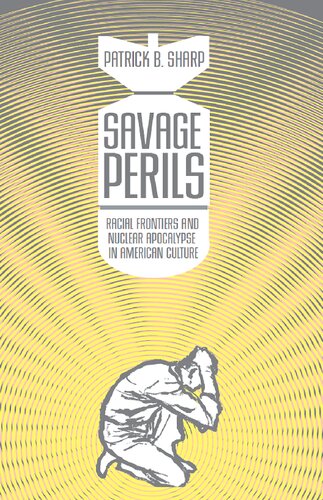

Most ebook files are in PDF format, so you can easily read them using various software such as Foxit Reader or directly on the Google Chrome browser.
Some ebook files are released by publishers in other formats such as .awz, .mobi, .epub, .fb2, etc. You may need to install specific software to read these formats on mobile/PC, such as Calibre.
Please read the tutorial at this link: https://ebookbell.com/faq
We offer FREE conversion to the popular formats you request; however, this may take some time. Therefore, right after payment, please email us, and we will try to provide the service as quickly as possible.
For some exceptional file formats or broken links (if any), please refrain from opening any disputes. Instead, email us first, and we will try to assist within a maximum of 6 hours.
EbookBell Team

4.3
48 reviewsRevisiting the racial origins of the conflict between “civilization” and “savagery” in twentieth-century America
The atomic age brought the Bomb and spawned stories of nuclear apocalypse to remind us of impending doom. As Patrick Sharp reveals, those stories had their origins well before Hiroshima, reaching back to Charles Darwin and America’s frontier.
In Savage Perils, Sharp examines the racial underpinnings of American culture, from the early industrial age to the Cold War. He explores the influence of Darwinism, frontier nostalgia, and literary modernism on the history and representations of nuclear weaponry. Taking into account such factors as anthropological race theory and Asian immigration, he charts the origins of a worldview that continues to shape our culture and politics.
Sharp dissects Darwin’s arguments regarding the struggle between “civilization” and “savagery,” theories that fueled future-war stories ending in Anglo dominance in Britain and influenced Turnerian visions of the frontier in America. Citing George W. Bush’s “Axis of Evil,” Sharp argues that many Americans still believe in the racially charged opposition between civilization and savagery, and consider the possibility of nonwhite “savages” gaining control of technology the biggest threat in the “war on terror.” His insightful book shows us that this conflict is but the latest installment in an ongoing saga that has been at the heart of American identity from the beginning―and that understanding it is essential if we are to eradicate racist mythologies from American life.